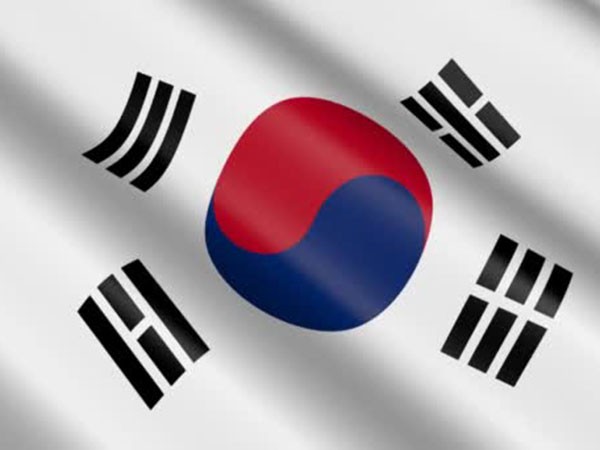
S. Korea faces tricky geopolitical balancing act amid intensifying Sino-U.S. rivalry
Apr 02, 2021
Seoul (South Korea), April 2: South Korea is facing an intricate diplomatic balancing act, as the United States pushes to close ranks with democratic allies, with China intent on precluding Seoul's tilt farther away from its geopolitical orbit, analysts said Friday.
The Sino-U.S. rivalry is likely to be on full display this week, when U.S. National Security Adviser Jake Sullivan hosts his South Korean and Japanese counterparts at the U.S. Naval Academy on Friday, a day before the foreign ministers of South Korea and China hold talks in a southern Chinese city close to Taiwan.
The meetings, expected to take place just hours apart given the time difference, will be a stark reminder that navigating the convoluted geopolitics will be a tricky foreign policy challenge for Seoul, as it angles for tighter coordination with the U.S. for North Korea's denuclearization and stable ties with China for trade and other exchanges.
"During the Cold War marked by a clear division between the two blocs and in the post-Cold War era marked by American hegemony, the answer was following the U.S., but the present-day challenge is something we have not experienced," Kim Heung-kyu, the head of the U.S.-China Policy Institute at Ajou University, said.
"South Korea apparently thinks that it is not helpful for its national interests to drive the situation into a binary choice between the great powers, and that it is not yet at a phase that calls for that sort of choice," he added.
Sullivan's trilateral meeting with his South Korean and Japanese counterparts -- Suh Hoon and Shigeru Kitamura -- will take place at the U.S. Naval Academy in Maryland, the cradle of the armed service, now the centerpiece of America's efforts for military preeminence in the Indo-Pacific region.
The White House made clear that the talks will focus on "advancing our shared prosperity across a free and open Indo-Pacific," which the U.S. sees has been challenged by China's growing assertiveness, particularly with its claims to the lion's share of the South China Sea.
On Saturday, Chinese Foreign Minister Wang Yi will hold the first in-person meeting with his South Korean counterpart, Chung Eui-yong, in the southeastern Chinese city of Xiamen where President Xi Jinping served as vice mayor in the 1980s during his rise up the political hierarchy.
The selection of the city in Fujian Province as a venue for Saturday's talks has drawn keen attention, as it is close to Taiwan, which the U.S. regards as a key partner in its drive to keep China in check, while Beijing regards the island as part of its territory under its one-China policy.
As for the timing of the meetings, Foreign Minister Chung said they were arranged to take place in the same week "by coincidence" despite speculation that the talks were scheduled based on careful geostrategic calculations by Washington and Beijing.
"(The timing) was not a decision we made intentionally. It was by coincidence," Chung said in a press conference.
Asked about the policy challenge posed by Sino-U.S. competition, Chung stressed Seoul's "unambiguous," "firm" position that based on the robust alliance with the U.S., South Korea will seek to "harmoniously" develop relations with China.
"The U.S. and China are by no means a subject of choice. Neither the U.S. nor China has made such a demand," Chung said, stressing that there is still much room for cooperation between the two major powers.
"We will make active efforts should there be a role we can play to promote cooperation between the U.S. and China, and help their relationship develop in a constructive manner," the minister added.
Questions, however, linger over the future trajectory of the Sino-U.S. contest as U.S. President Joe Biden has taken a tough stance on China, backed by bipartisan support, with Beijing showing no signs of backing down on key fault lines such as the human rights issue in its western Xinjing region and crackdowns on the pro-democracy movement in Hong Kong.
China, on its part, appears to be hewing to what is known as "wolf warrior diplomacy" -- a confrontational, nationalistic approach in contrast with previous foreign policy practices averse to direct clashes with the West.
What is darkening the prospects of Sino-U.S. relations is that they are increasingly colored by "competition" rather than cooperation as "responsible stakeholders," as their rivalry has been escalating on multiple fronts, including technological leadership, trade and maritime security.
In his interim national security strategic guidance released last month, Biden called China the "only competitor potentially capable of combining its economic, military and technological power to mount a sustained challenge to a stable and open international system."
The heightened competition between the major powers has led to growing calls for South Korea's "strategic clarity" on key geopolitical issues, as Seoul has apparently been ambivalent on the issues.
But many analysts argue that there could be more to lose than to gain if Seoul picks a side.
"China appears to bring South Korea closer to its side, as Seoul may be a weak node that it can hammer away at, but Korea is also cognizant of that," Kim Tae-hyung, a professor of international politics at Soongsil University, said.
"That, in a sense, reflects the growing strategic value of South Korea, and I think Seoul needs to try to keep a delicate balance for the time being as there
is a likelihood that things would turn for the worse after betting on one side on the expectation that things will be better off," he added.
But Kim Han-kwon, a professor of the foreign ministry-affiliated Korea National Diplomatic Academy, noted the need for a gradual shift in Seoul's policy characterized by "strategic ambiguity."
"As the Sino-U.S. strategic competition deepens, South Korea has reached a point where it needs to prepare for its concrete responses to each issue based on principles established through national consensus on values, identity and national interests," he said.
In recent years, Seoul has been trying to map out a coherent strategy to deal with the U.S.-China rivalry in a more principled manner. But progress has apparently been slow, with its foreign policy establishment preoccupied with the aftermath of the COVID-19 pandemic.
Source: Yonhap









